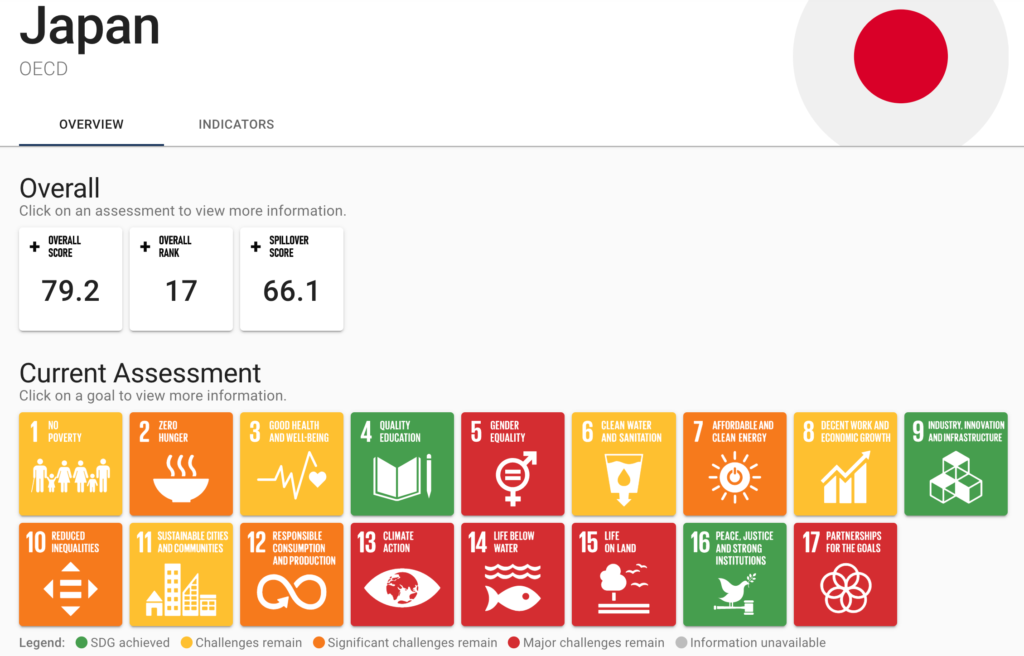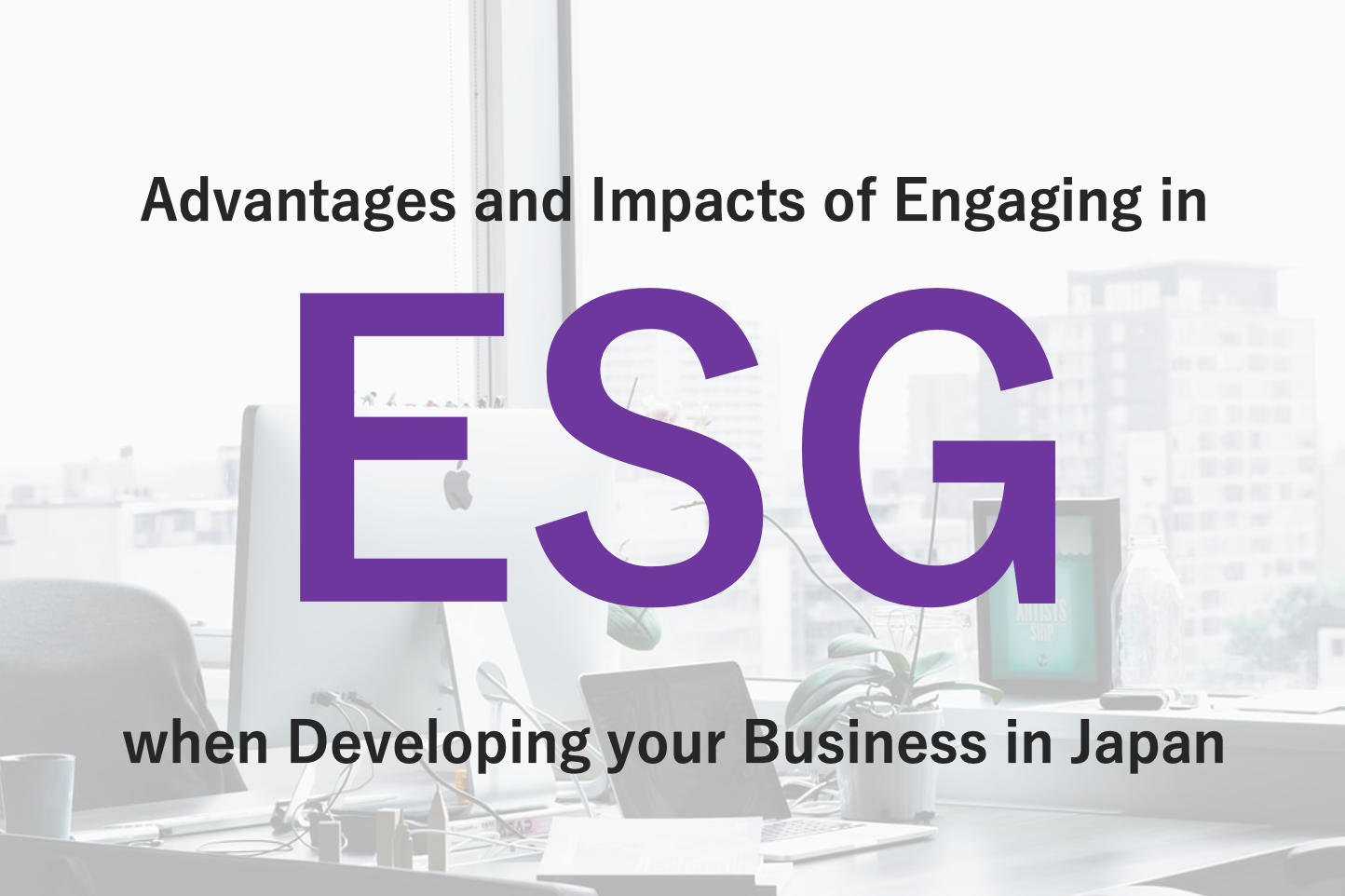With the worsening impact of global warming, sustainable activities have become more important than ever. In addition, there is an increasing awareness of the need to tackle other global issues, such as poverty, inequality, and access to education. Aimed at solving these issues are the SDGs; Sustainable Development Goals, and the SDGs Business.
In this article, we will explain what SDGs are and how to succeed in your business while achieving SDGs.
Contents
- What is “SDGs”?
- SDGs Achievements in Japan
- SDGs Businesses and ESG
- Advantages of Engaging in an SDGs Business
- Important Points when Starting an SDGs Business
- Examples of Efforts Made by Japanese Companies to Achieve SDGs
- Conclusion
What is “SDGs”?

SDGs is an abbreviation for “Sustainable Development Goals,” and are also known as the Global Goals. This was adopted by all United Nations Member States in 2015 to end poverty, protect the planet, and ensure that all people enjoy peace and prosperity by the year 2030.
SDGs consist of 17 goals and 169 targets. If you want to know more about SDGs, please check out this article by the United Nations Development Programme (UNDP).
SDGs Achievements in Japan

According to the Sustainable Development Report 2020 issued in June of 2020, Japan was reported to have an SDG index score of 79.17 %, which is ranked 17th out of the 193 countries partaking in the SDGs.
In this report, the 17 goals were classified into 4 levels according to the degree of achievement: “SDG Achieved”, “Challenges Remain”, “Significant Challenges Remain,” and “Major Challenges Remain”. In Japan, SDGs 5, 13, 14, 15, and 17 fall under “Major Challenges Remain,” highlighting the need for Japan to focus on gender equality, climate change, the lives on sea and land, and partnerships for achieving SDGs.
The SDGs achievement in Japan is explained in detail in The Sustainable Development Report 2020.
SDGs Businesses and ESG

SDGs Businesses are businesses based on SDGs. An SDGs Business has to aim towards solving social issues such as poverty, climate change, equality, and achieving other SDGs.
ESG is an acronym for “Environmental, Social, and Governance.” These factors are used to evaluate the sustainability that has been achieved by a company, and they are important for a company’s growth in the long run.
Although both SDGs and ESG are important concepts for realizing a sustainable system in the world, they differ a little. ESG is a way of thinking for companies to achieve SDGs, while SDGs are global goals. Therefore ESG is an important key for a company to achieve SDGs.
Advantages of Engaging in an SDGs Business in Japan

Working on the SDGs is not an obligation imposed on companies in Japan. Although addressing poverty and environmental issues can be seemingly costly for businesses, there are some advantages for business in Japan to take part in SDGs;
Financing advantages with ESG investment
ESG investment has been gradually getting attention in Japan, with investors investing in companies that partake in ESG-based businesses.
The graph below depicts the shift in the scale of ESG investment assets. As can be seen, there is an increasing trend in the scale of the assets.
Shifts in the scale of Japanese ESG investments ⁽¹⁾
Investors tend to put into consideration whether or not a business is based on an ESG perspective before deciding to make an investment. Therefore you can get financial support easily if your business is based on ESG since almost all the SDGs Business are based on ESG perspectives. Thus, you will have financing advantages if your business is related to achieving SDGs.
Effective for corporate branding
SDGs is a global initiative, so companies working on realizing SDGs are recognized as companies that fulfill their responsibilities to society, and are extremely effective in improving their corporate image and branding. Having a high corporate and brand image through such initiative will make brilliant talents gather at the company. Therefore companies that are actively engaged in SDGs will also have an advantage in recruiting employees.
Relationships with stakeholders will improve
SDGs are universal goals, so companies need to work on SDGs as a Corporate Social Responsibility (CSR). CSR means that the companies should not be profit-oriented and take voluntary action with a strategy to fulfill their responsibilities to stakeholders including citizens, investors, and to society as a whole. As companies fulfill their CSR, their relationships with stakeholders will also improve.
Conversely, companies that do not work on SDGs may express their indifference to the challenges people face around the world and are more likely to be removed from the supply chain or lose the support of shareholders and the community.
Important Points when Engaging in SDGs Business

When considering SDGs in your business, there are some important points to remember.
Integrating with the management philosophy
Working on SDGs can influence your business opportunities, branding, and CSR activities. However, if this initiative deviates from the corporate management philosophy, the company’s philosophy will be blurred. When introducing SDGs into your business, it is necessary to integrate the goals with the management philosophy and guidelines in line with the SDG Compass and determine the direction of the strategy.
Be careful not to create new social problems
Social issues are intricately intertwined, so it is important for business owners to avoid contradictions. For example, to eliminate poverty (SDG 1), if you destroy a forest and convert it to agricultural land, even if jobs are created, land affluence (SDG 15) is lost due to the deforestation and the destruction of ecosystems.
Prevent “SDGs washing”
SDG-washing is the term used when businesses acknowledge the existence of the SDGs and point out the ways in which they align with the SDGs without making a meaningful contribution to the achievement of the goals.
For example, while proclaiming environmentally friendly farming, underaged children are working at low wages on the farmland.
If you do not pay attention to these points, the image and value of the company will be negative.
Examples of Efforts Made by Japanese Companies to Achieve SDGs

There are a lot of companies in Japan that are engaged in SDGs through their business. Here are 3 examples;
Art Corporation Co., Ltd. (アートコーポレーション株式会社)
Art Corporation is a company that is categorized under the comprehensive transportation industry. In order to reduce the packing materials used in moving and save as much resources as possible, the company has developed an “Eco-Raku Box,” sustainable packing materials which can be recycled. In addition, the company also collects used cardboard boxes and recycles them.
The activities of Art Corporation can lead to the achievement of SDG 12: Responsible Production and Consumption.
If you are interested in knowing more about Art Corporation Co., Ltd., check out their homepage.
Kasuga Paper Industry Co., Ltd. (春日製紙工業株式会社)
Kasuga Paper Industry is a company that manufactures, processes, and sells paper. The company develops paper straws and paper lids for cups to reduce the amount of plastic waste. In Japan, the use of paper instead of plastic has been increasing, and the use of those manufactured by the Kasuga Paper Industry is popular. The activity of this company leads to the achievement of SDG 14: Life below Water.
Please check out their homepage for more information.
Sumitomo Forestry Co., Ltd. (住友林業株式会社)
Sumitomo Forestry is a company that deals mainly in forestry, timber building materials, housing and real estate business. The company is working on sustainable forest management considering biodiversity and reducing greenhouse gases by making high-rise buildings wooden. In terms of SDGs, it can lead to the achievement of SDG 13: Climate Action and SDG 15: Life on Land.
Please check out their homepage for more information.
If you want to know more companies in Japan working on SDGs, please check this page (in Japanese).
Conclusion

In conclusion, it is recommended for foreign entrepreneurs who are thinking about starting their business in Japan to understand and consider SDGs in their business. There are a lot of advantages attached to it, which can boost your business development. Moreover, SDGs are global goals and important concepts all over the world. You cannot ignore them.
Notes for the readers:
Please use this article only as a reference, not as a legal guideline. Sugee.jp will take no responsibility or liability, so far as legally possible, for any consequences of your actions. This article was written by Kyoko, a SUGEE writer, on 12 April 2021.
References
[1] Sustainable Development Report 2020 Retrieved 19 May 2021 from https://sdgindex.org/reports/sustainable-development-report-2020/
[2] Nikko Research Review (2016) Retrieved 19 May 2021 from https://www.nikko-research.co.jp/en/wp-content/uploads/sites/2/2016/04/ResearchReport201604E.pdf
[3] 日本企業がSDGsに取り組む目的・メリットは?企業の事例とともに紹介(2020) Retrieved 19 May 2021 from https://www.sofia-inc.com/blog/5377.html



